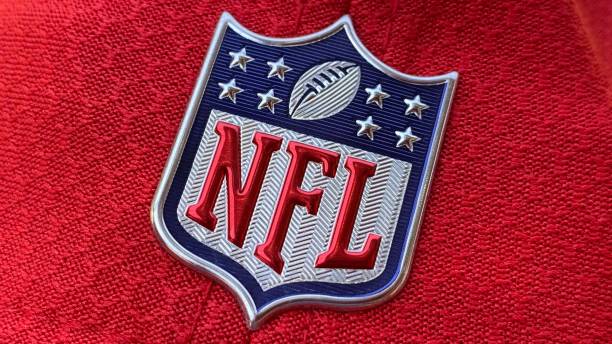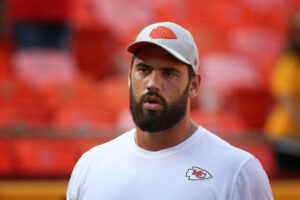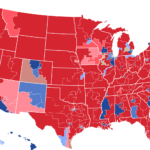Change is here. Around the world, Covid-19 has interrupted leagues, tournaments, and events of all sizes. It was supposed to be a summer featuring Euro 2020 and the Tokyo Olympics. As European leagues return to normalcy, sports as usual are not possible in North America. Cross-border travel is not an option. Empty stadiums are necessary. Staying financially viable will be difficult for some. It won’t be possible for others.
Bordering Disaster
The Canada-United States border is closed. The sports world is not excepted. The odds re-opening even before February are very low. As Canada gets their pandemic under control, sports leagues are looking to open up.
For leagues who play across borders, normality is not an option. This will mean empty stadiums, limited travel, and the death of many sports franchises. Without a major overhaul, even some leagues will be threatened. Making money across the border is next to impossible currently.
All Quiet on the Northern Front
A considerable amount of play occurs between teams on both sides of the border. Smaller teams are scattered across the continent. The Canada-USA angle has influenced many sports: Toronto Blue Jays fans in Toronto, Maple Leafs fans everywhere.
Occasionally there’s a boo or two at an anthem, but that’s the exception. Canadian teams playing American ones (and vice versa) is as old as our countries. The border traditionally hasn’t prevented sports. Currently, the 49th parallel might as well be a wall.
Canada: Too Boring to Deal With
Canadians have to wait. The USA has some other things going on. As such, there is no timeline for opening the border. Cross-Border Institute (CBI) director Bill Anderson was quoted saying:
“The people I speak to who know the opinions of the administration in Washington say no one has an appetite to touch the issue until after the U.S. election.”
Uncertainty is the only guarantee. No matter who wins the election, November will be chaotic in Washington. Lobbyists and politicians will no doubt be working on getting the border open. Their success isn’t likely to come quickly.
Dealing with Canada will be a long term thing. It will not be a top priority file in the White House until other priorities are managed. The aforementioned CBI does not expect progress on that front until next year at the earliest.
January events are not happening.
Until the border re-opens, athletes and teams who traditionally cross the border many times a month will be stopped from doing so. Canadians seem uniquely united on this file, wanting to keep the border closed until Covid is managed. Polling company Abacus Data has found nearly 90% of Canadians want the border to remain closed for now.
Blocked
The world of sports isn’t wide enough to deal with this. The National Basketball League (NBA), the National Hockey League (NHL), Major League Baseball (MLB), Major League Soccer (MLS), and numerous minor and developmental leagues play across the continent in normal times.
Then there are other sports with individual athletes including wrestling, mixed martial arts, and so much more. There isn’t so much as a darts league currently unaffected. Even if they can play, the money making aspect is not available. This will cause bankruptcies.
Teams being unable to access others stadiums is a unique issue. In some places it isn’t possible to play. In other places they simply shouldn’t. Empty arenas and stadiums will only make the problems worse.
The First League To Go Under?
The American Hockey League has already expressed their concern. Former league president David Andrews made clear the uncertainty in a discussion with Sportsnet.
“…whether it’s a full league operating for a full season, or whether it’s some critical mass of teams operating for less than a full season or whether it’s regional competitions — a completely different look than what we’ve done in the past get through 2020-21.
“There are options on the table, but it’s not clear what they can do. Andrews stated it bluntly for corporate speak “…we’re going to have to find that solution as we go along.” In English, that means they don’t have a plan.
Planning successfully requires getting a handle on the parameters. There’s no way to do that right now. The clock ticking toward next season is going to be going for a while.
2020-2021 Seasons
It is uncertain if teams are acknowledging reality. The NHL’s Gary Bettman has recently been reported to be looking at a November or December start for next season. The MLB is having teams travel around the country. The Miami Marlins’ recent outbreak demonstrates well why the Toronto Blue Jays were recently blocked from hosting games. Safety protocols were not good enough.
The MLS is reportedly looking at a phased in season. Per a report in the Athletic, their first phase would see Canadian teams only play Canadian teams. Their plan is reportedly hoping Canadian teams will be able to cross the border by September. There is no reason to expect their hopes to come true.
Turtles, All the Way Down
These major leagues can play in empty stadiums in the short term. Beyond that it gets murky. The further you get from the spotlight, the worse the results will be.
For developmental leagues and events out of the major spotlight, the only option will be to wait and rely on their current financial strength. That’s not good.
The economic outlook is frightening. Forbes has looked into how deeply this will cut into profits in baseball. They estimate MLB losing $640,000 per game. Given television rights and international popularity, the major players can weather this storm.
Reform is happening anyway. The league has been looking into re-structuring their minor league system for some time. The goal is to increase profits while continuing to develop players. Baseball has been considering those changes for at least two years. Other sports may have to make similar changes.
The Canadian Hockey League is for example in serious jeopardy. The Canadian Football League is asking the Government for a handout.
For those who don’t have the ability to lobby, eventual returns to play will be very different. Teams and leagues may be gone. Entities such as the East Coast Hockey League may not be able to operate. The Hockey News reports some athletes may have to give up the sport.
The National Football League Stands Alone
If one league has the ability to ignore COVID, it’s the NFL. Having a television contract worth $5 billion a year helps. Unfortunately, ignoring it does largely seem to be the strategy. There is no sign of a truly effective plan to protect players in place. Other than perhaps having a dream board inspired by Rhonda Byrne’s the Secret. It is clear they are failing to plan.
It is uncertain why the NFL is “managing” their pandemic response this year. Instead of showing leadership, the league seems to be following the preferred path of the White House. Pretending it doesn’t exist and hoping it goes away.
The NFL may have the money to continue on. It is a uniquely American institution. Their developmental system involving the NCAA will be their biggest issue. Unless bad press is a concern.
Reality Reforming Sports
For those who aren’t lucky enough to have the money to ignore a pandemic, serious adaptations are coming. The leagues that have to deal with reality will soon have to acknowledge the truth.
Closures are here for a while. The border is not opening, and neither are ticket booths. As fun as it is to see cardboard cutouts or stuffed animals in stands, it’s just a temporary thing. These are distractions from the long term issues. There is going to be a considerable time period where it will be impossible for certain sports to make money.
Only the E-Sports world is truly well built for this. Contrary to other entities, their revenues have been growing and look likely to rise.
Future Outlook
Waiting is currently the only option for many. COVID-19 is showing no signs of slowing in the United States. While Europe re-opens, their leagues cannot be used for comparison. This may see a lot of athletes make European plans over the next year–a “brain drain” of athletes.
Until serious political action is taken, the pandemic will not slow. As we see the government actively undermining its own pandemic efforts, this is going to take a while. With a heavily politicized response, it is no surprise that partisan affiliation is affecting outcomes.
It is likely the sports world is feeling the effect of this divide. Approximately 37% of Americans approve of Donald Trump’s COVID response. When the pool begins with about 320 million, a third of those people is an immense group. Unquestionably they will be involved in sports as they are a part of society. With the base happy, there is little sign that the White House is open to reconsidering their plan. That means status quo, and more deaths. At least in the sports world, teams will (hopefully) only lose money.
Until actions are taken to tackle the pandemic, it will not go away. For teams and athletes, this means they can only wait.
Main Photo:











